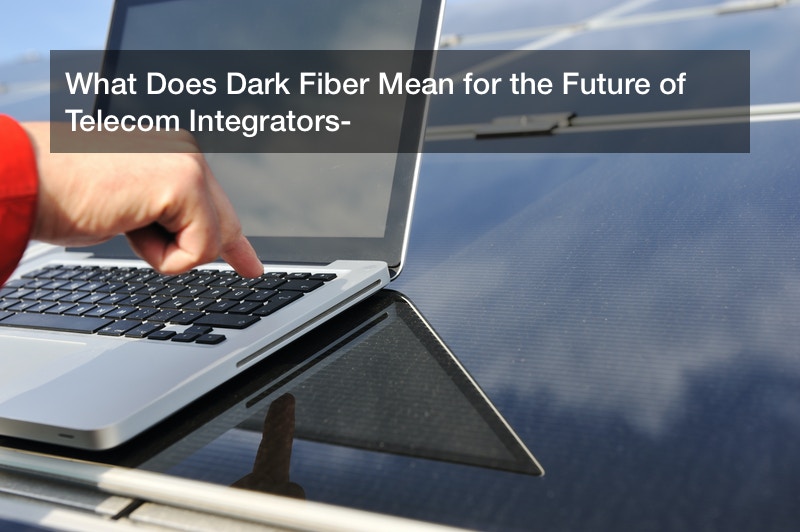
Within the past 5 years, the fiber-optic cable manufacturing industry has seen upward growth of 11.8%. Fiber technology has only grown when it comes to connectivity and includes dark fiber cable. What exactly is dark fiber and what does it mean for telecommunication companies? Dark fiber is a fiber optic infrastructure that’s unlit or unused. Fiber optic cables move data via pulses of light that are transmitted through the cables. Any cables that are completely unused are, in the very sense of the word, dark. Dark fiber optic requires joint-use type interactions with an owning company. With newer implementations, dark fiber stands to transform with the complexity of joint-use that are related to the deployment of new fiber and small cells.
Now more than ever working with dark fiber companies is vital. What is now called ‘dark fiber’ won’t stay dark. Telecommunication companies ranging from small to corporate are interested in using dark fiber and its potential. Joint-use experts are literally turning the light on from lessees to asset owners within a telecommunications company.
The joint industry is embarking on times that are changing. Challenges are being remedied by attaching companies and owners who are turning to a platform of centralized joint-use. Dark fiber companies are becoming better known for providing platforms and consultation services that create better communities with better infrastructures through the use of software and services.
Dark fiber optic services in Latin America are the perfect alternative to commercial internet services. Dark fiber companies can help reduce costs, give your organization the redundancy you want and need for business continuity and disaster recovery and improve latency. It’s time for your organization to discover what dark fiber can do for you when it comes to dropping bad commercial internet service.
Understanding Dark Fiber and What It Means for Your Company
It helps if you understand the term ‘dark fiber’. It essentially is in relation to fiber optic cable that’s been put in the ground, yet is not being used. Whenever fiberoptic cables are buried, the majority of the cost revolves around getting the cable beneath the ground. The actual fiber optic cable only costs 10% in relation to the cost of burying it. Dark fiber companies bury as many fibers as they can. Since there are a lot of cables buried in relation to how many are actually being used, it leaves the rest of those fibers for companies to use via lease.
Why Should Your Company Lease Dark Fiber?
Using the services offered by dark fiber companies is all about money. Dark fiber is all about saving money and the potential it exudes when it comes to future cost savings. This is especially true if your business has a lot of data that needs to be moved around.
Dark fiber is known to improve latency. It’s all about the speed. Dark fiber companies know this and are ready to provide you with a straight line from one point to another to improve your performance. Getting data sent fast is what dark fiber is all about for the telecommunications industry.
Physical redundancy is important for telecommunication systems. When disaster recovery and business continuity are vital, you need the services offered by dark fiber companies that can be relied upon. Disasters and natural disasters happen and can cause organizations to lose primary and backup connectivity. Dark fiber provides the physical redundancy that most internet providers cannot.
Over all the advantages of using dark fiber are growing. Dark fiber holds great promise for telecommunications companies that need infrastructure. It is appealing, controllable and economical.
